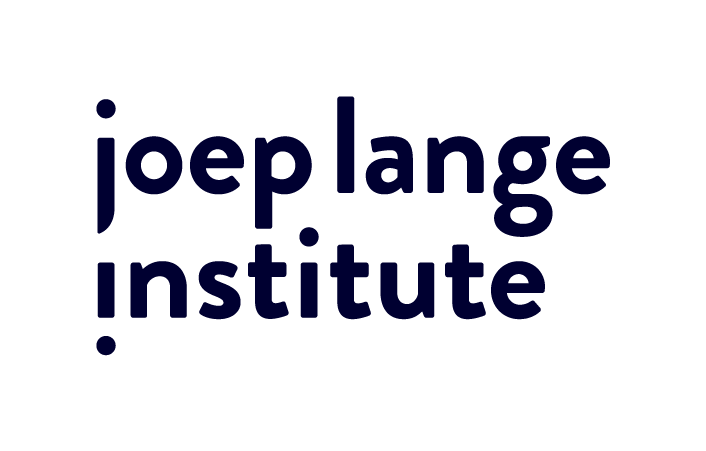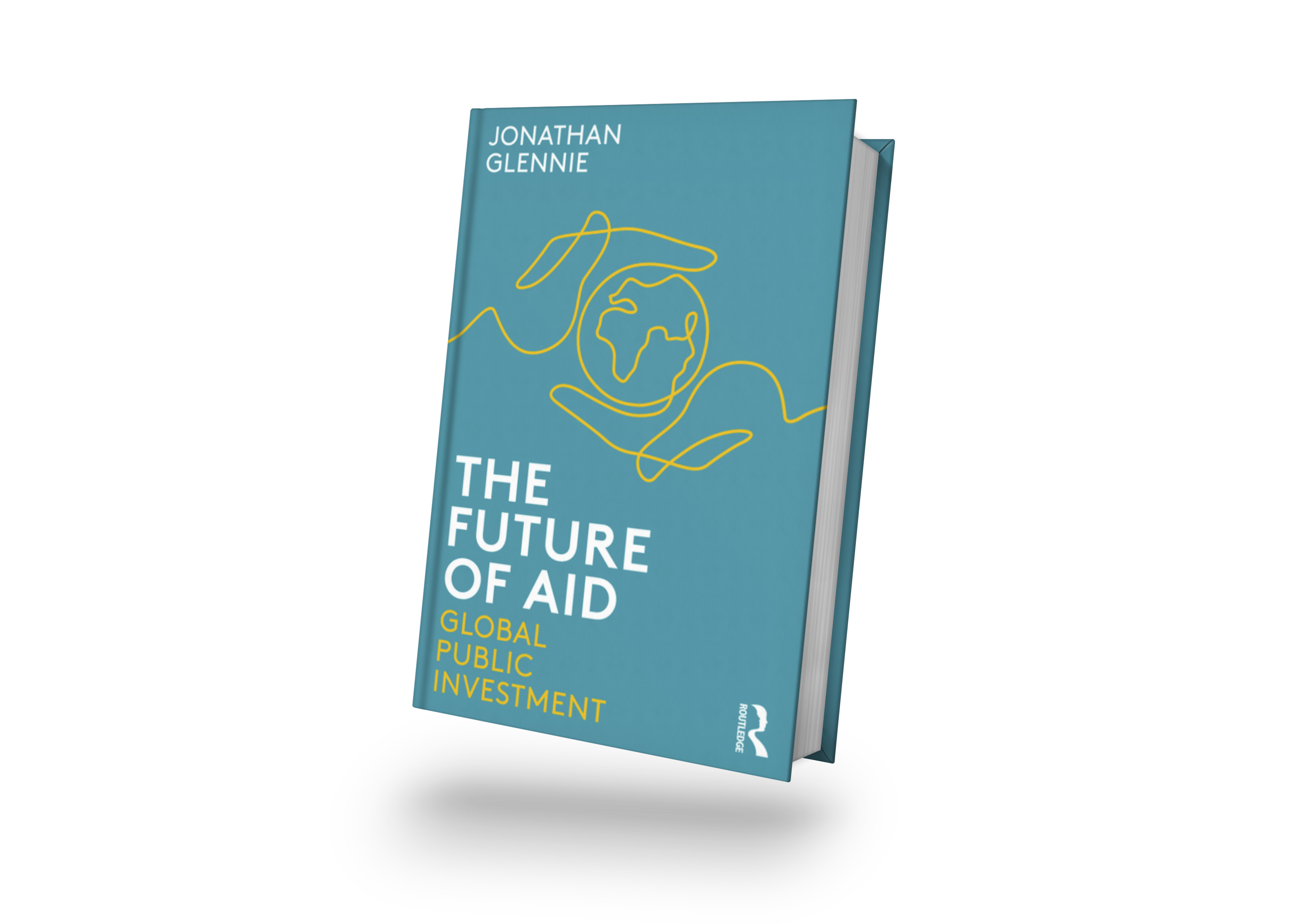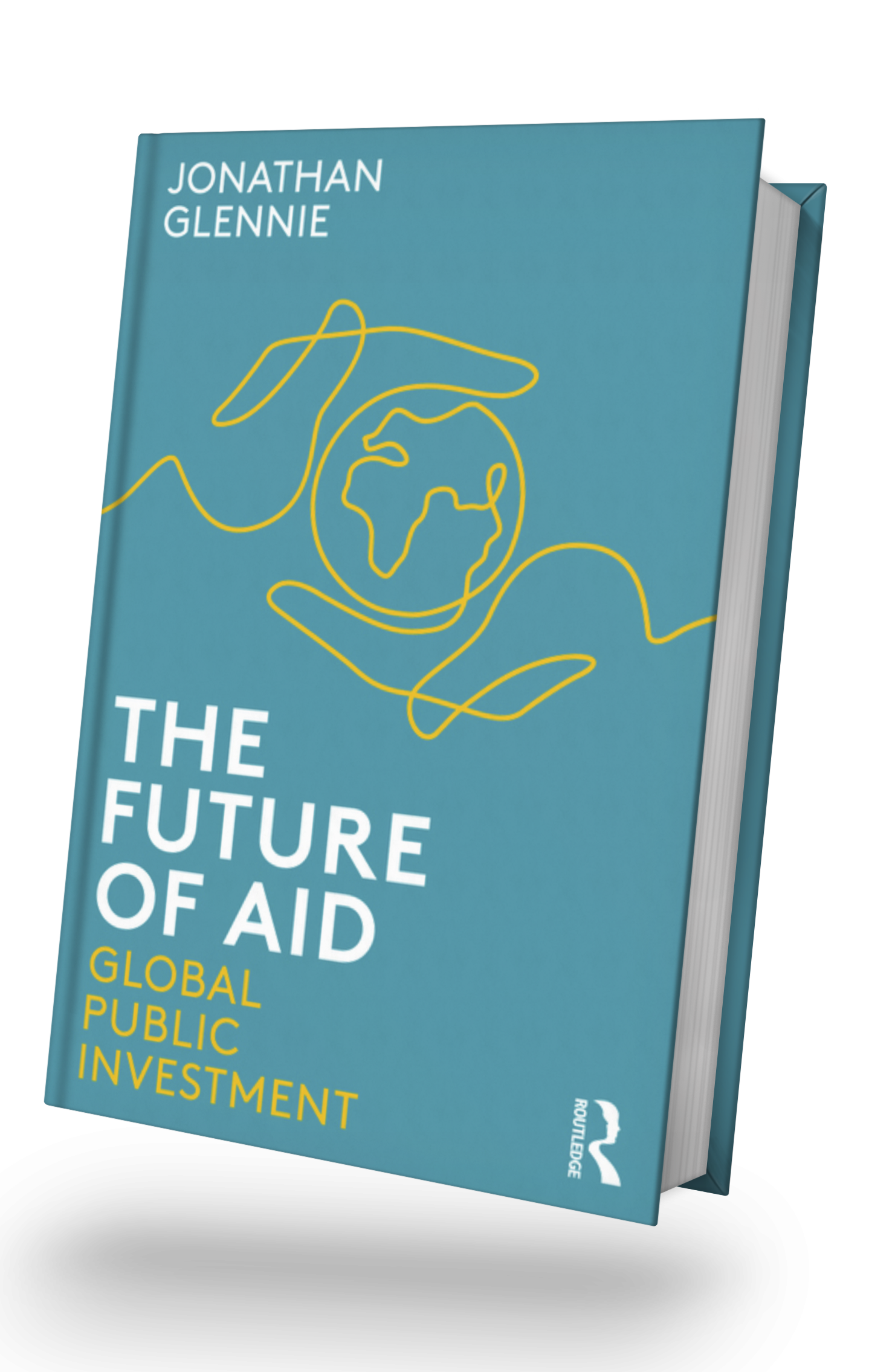On November 30, Jonathan Glennie published his new book The Future of Aid, Global Public Investment. Jonathan has been engaged with the Joep Lange Institute as a Principal Associate and has presented on this topic during the 2019 UN General Assembly week, at several Wilton Park (UK) meetings and several civil society discussion organized by (among others) the Global Fund Advocates Network.
His latest book presents a more advanced and comprehensive version of the concept of Global Public Investment that he believes should replace ‘aid’ as we know it. At the heart of this transition he suggests a series of paradigm shifts:
- From a narrow focus on poverty to a broader attack on inequality and sustainability.
- From seeing international public money as a temporary last resort, to valuing it as a permanent force for good.
- From North-South transfers to a collective effort, with all paying in and all benefitting.
- From outdated post-colonial institutions to representative decision-making.
- From the othering and patronizing language of “foreign aid”, to the empowering concept of Global Public Investment.
Global health advocates have been quite successful in helping to mobilize substantial resources for organizations such as the Global Fund to Fight AIDS, Tuberculosis and Malaria or GAVI, but also often found themselves bouncing against ‘a wall’ of lacking political will and limitations that are enshrined in old ‘aid ideologies’: the fact that aid should in principle be ‘limited and ending’, the old school paradigm (and language) of the rich helping the poor, how the root causes of entrenched neo-liberalism and therefore growing inequality were left unaddressed, the overstated role of the private sector and under-acknowledged importance of the responsibilities of the public sector as well as the distinct characteristics and importance of public money, etc. The paradigm shifts that Jonathan describes are needed to redefine global development financing, not only in Lower- and Middle-Income Countries, but in all countries based on equity and true global solidarity – in health as well as other development areas (the SDGs). The recent COVID-19 crisis only illustrates ones more that we need different models for international collaboration in health!
The book is helpful contribution to the political discourse around rethinking ODA and a rich tool for advocates in looking (and speaking) beyond the current ODA definitions and practices. There is an increasing awareness that current ODA are not future proof and this book shows that we could work on a very different – more equal and respectful – basis and ultimately achieve more.
”This book articulates what many intuitively feel but few say out loud: that aid needs reformed, increased and maintained for the long term. Not charity, but smart investment in a more just and sustainable world. Glennie eloquently lays out a new vision for the necessary international public finance required. If you are serious about fighting inequality and climate change this is a must read.
Dr. Christoph BennDirector of JLI Global Health Diplomacy
Jonathan Glennie is a writer and campaigner on human rights, international cooperation, sustainable development and poverty. His work looks in particular at the changing nature of international cooperation as dominant paradigms and global economic relationships evolve. He has held senior positions in several international organisations, including Save the Children, Christian Aid and Ipsos. He has published two previous books on aid (The Trouble With Aid: Why Less Could Mean More for Africa and Aid, Growth and Poverty, with Andy Sumner) and helped set up The Guardian’s Global Development website. As a consultant, he has worked with governments, international agencies and civil society organisations as they renew their strategies for a new era. He lives in Colombia.





